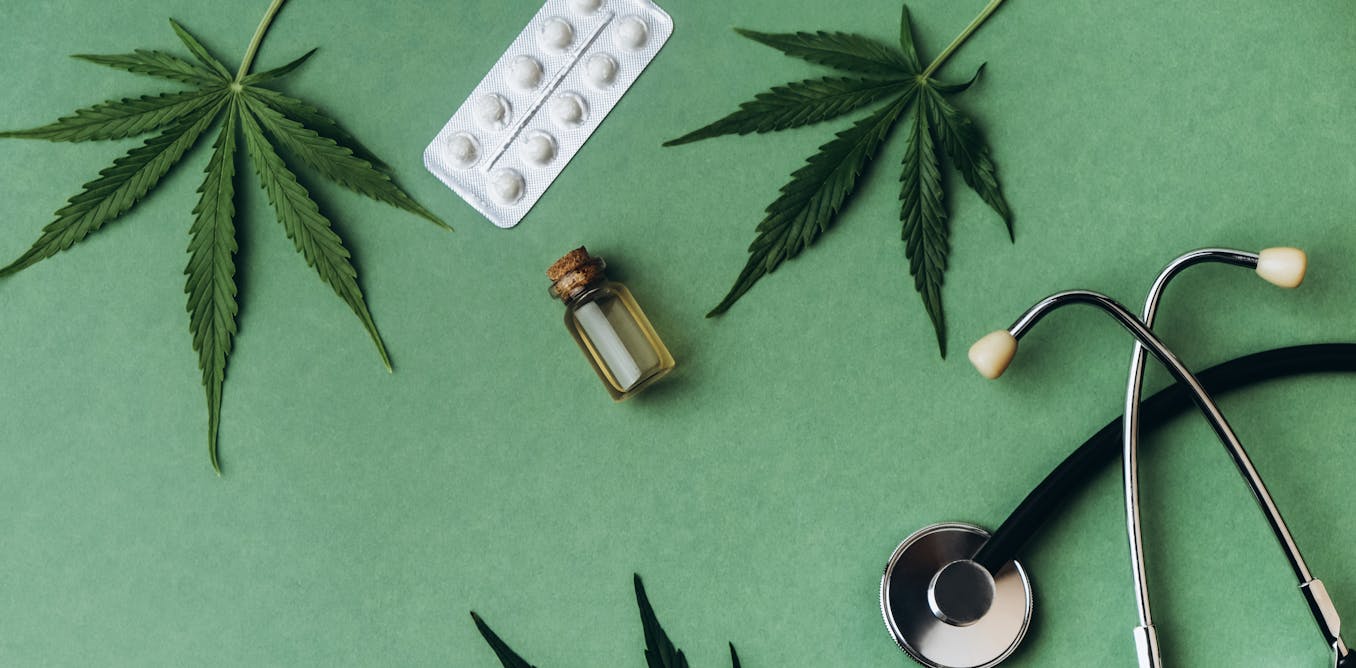Fewer Americans Turn to Anti-Anxiety Medications


In States Where Both Medical and Recreational Marijuana are Legal, Fewer Patients Fill Prescriptions for Anxiety Medications
In states where both medical and recreational marijuana are legal, fewer patients are filling prescriptions for medications used to treat anxiety. That is the key finding of my recent study, published in the journal JAMA Network Open.
Background
I am an applied policy researcher who studies the economics of risky behaviors and substance use within the United States. My collaborators and I wanted to understand how medical and recreational marijuana laws and marijuana dispensary openings have affected the rate at which patients fill prescriptions for anti-anxiety medications among people who have private medical insurance.
Methodology
We analyzed data from 2014 to 2019, using a dataset that included information on prescription fills, patient demographics, and state-level marijuana laws. We included benzodiazepines, antipsychotics, antidepressants, barbiturates, and sleep medications in our analysis.
Key Findings
We find consistent evidence that increased marijuana access is associated with reductions in benzodiazepine prescription fills. Notably, we found that not all state policies led to similar changes in prescription fill patterns.
Why it Matters
In 2021, nearly 23% of the adult U.S. population reported having a diagnosable mental health disorder. Yet only 65.4% of those individuals reported receiving treatment within the past year. This lack of treatment can exacerbate current mental health disorders, leading to increased risk for additional chronic conditions.
Marijuana access introduces an alternative treatment to traditional prescription medication that may provide easier access for some patients. Many state medical laws allow patients with mental health disorders such as post-traumatic stress disorder, or PTSD, to use medical cannabis while recreational laws expand access to all adults.
Implications
Our findings have important implications for insurance systems, prescribers, policymakers, and patients. Benzodiazepine use, like opioid use, can be dangerous for patients, especially when the two classes of drugs are used together. Given the high level of opioid poisonings that also involve benzodiazepines – in 2020, they made up 14% of total opioid overdose deaths – our findings offer insights into potential substitution with marijuana for medications where misuse is plausible.
What Still Isn’t Known
Our research does not clarify whether the changes in dispensing patterns led to measurable changes in patient outcomes.
There is some evidence that marijuana acts as an effective anxiety treatment. If this is the case, moving away from benzodiazepine use – which is associated with significant negative side effects – toward marijuana use may improve patient outcomes.
Conclusion
Our study suggests that increased marijuana access is associated with reductions in benzodiazepine prescription fills, which has important implications for patient care and public health. However, more research is needed to understand the effects of marijuana on patient outcomes and to determine whether marijuana is a safe and effective alternative to benzodiazepines for treating anxiety.
FAQs
Q: What did the study find?
A: The study found that increased marijuana access is associated with reductions in benzodiazepine prescription fills.
Q: What are benzodiazepines?
A: Benzodiazepines are a class of medications used to treat anxiety, insomnia, and seizures. They work by increasing the level of GABA, a neurotransmitter that elicits a calming effect.
Q: What are the implications of the study’s findings?
A: The study’s findings have important implications for insurance systems, prescribers, policymakers, and patients. Benzodiazepine use can be dangerous for patients, especially when used with opioids, and our findings offer insights into potential substitution with marijuana for medications where misuse is plausible.
Q: What are the limitations of the study?
A: The study does not clarify whether the changes in dispensing patterns led to measurable changes in patient outcomes. More research is needed to understand the effects of marijuana on patient outcomes and to determine whether marijuana is a safe and effective alternative to benzodiazepines for treating anxiety.
Recent Posts
Popcorn lung: how vaping can scar your lungs for life
A US teenager was recently reported to have developed the oddly named medical condition “popcorn…
7 Signs At-Home Care Is Needed for Someone With Dementia
Dementia home care can help someone with memory loss stay safe, comfortable, and independent in…
Why Sleeping on an Incline Could Be Beneficial for You
Sleeping on an incline or with part of your body elevated can be beneficial for…
2025 Wasatch Warrior Pro Bodybuilding Show Preview
The 2025 Wasatch Warrior Pro is set for Saturday, April 19, 2025, in Salt Lake…
The Best New Balance Shoes That Runners and Podiatrists Keep Recommending
Another plus: These shoes have earned the American Podiatric Medical Association’s (APMA) seal of acceptance,…
2025 World of Monsterzym Korea Pro Bikini Division Show Preview
A 2025 Bikini Olympia qualification will go to the winner of this show. Eleven athletes…



